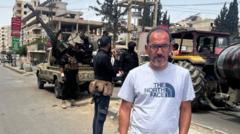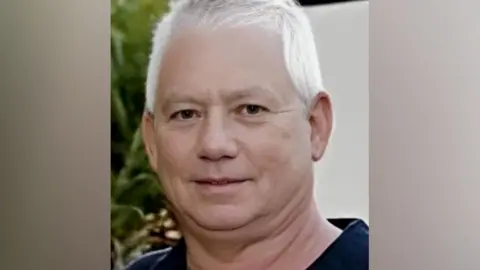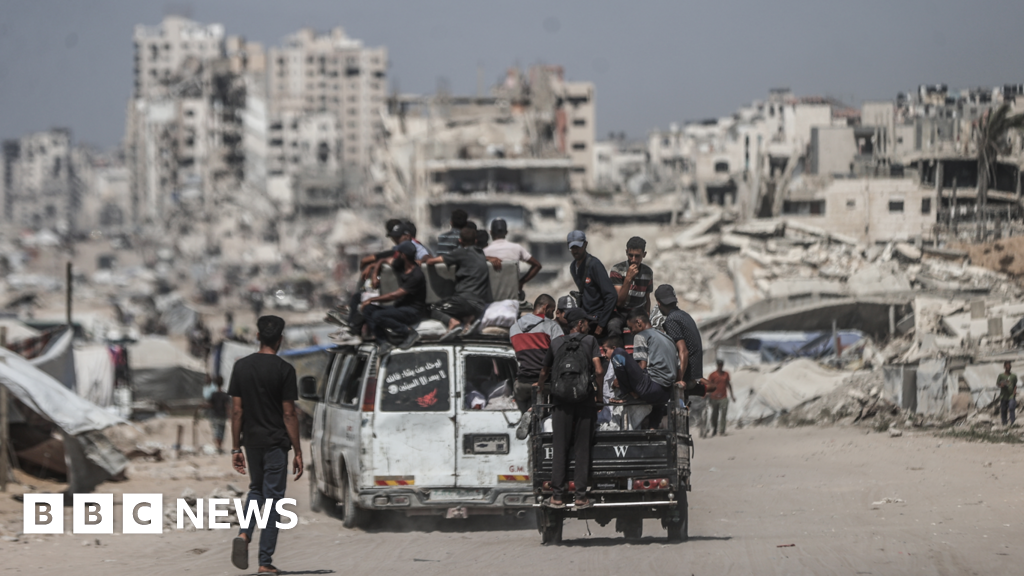On the morning of May 9, a team from BBC Arabic, including myself, set out from Damascus to report from southern Syria in Deraa province, aiming to reach the border with the Israeli-occupied Golan Heights. Our goal was to investigate the recent Israeli military control in the area, as declared by the Israeli Prime Minister after the fall of Bashar al-Assad's regime. Our team comprised seven members, including a British citizen, two Iraqi employees, and four Syrian freelancers.
While filming near a UN Disengagement Observer Force observation post close to al-Rafeed, we were identified by a UN official as a BBC crew. Subsequently, we continued north towards Quneitra city—a site within the established buffer zone post-1974. An unguarded checkpoint suddenly obstructed our path, and we noticed Israeli Merkava tanks nearby, flanked by soldiers observing us.
Just a minute into our filming, a white car pulled up, and four Israeli soldiers approached us, brandishing rifles. Despite our efforts to explain our position as journalists, tensions escalated rapidly, leading to the confiscation of our equipment and phones. Additional soldiers arrived, and we were escorted into Quneitra city, where our footage was scrutinized at gunpoint.
After being detained for over two hours, I was taken aside for questioning by a soldier who spoke broken Arabic. Despite my reassurances of our journalistic intent, I was subsequently led to a separate room where I was subjected to invasive searches and interrogation, while my team remained tied and blindfolded.
I witnessed the officers treating my colleagues harshly and demanding to search their belongings thoroughly before allowing them to return, albeit still constrained. Our personal items were examined, and threatening remarks were made regarding our future reporting.
Eventually, after seven hours of being held captive, we were released on a rural road outside Quneitra, given back our belongings, and left to navigate our way back to Damascus without any guidance. We were warned against approaching the area again, indicating the precarious nature of reporting in regions of conflict and the significant challenges faced by journalists seeking to cover critical stories amidst intense military oversight.




















